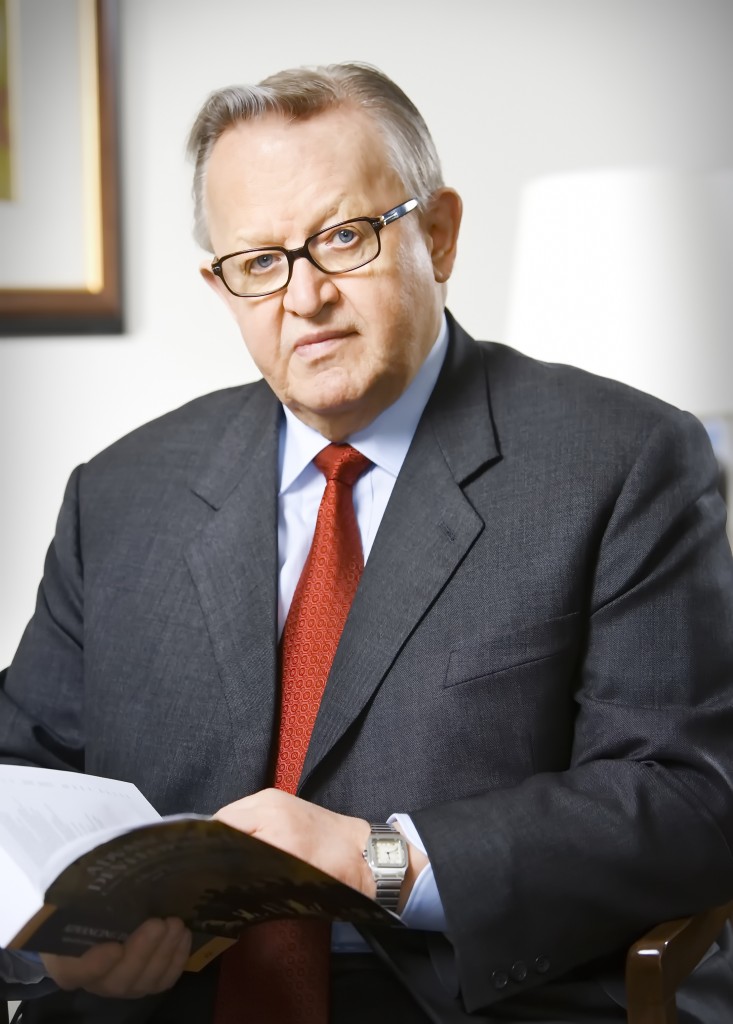HELSINKI – As Finland celebrated the Day of the Peacemaker last month, The Astana Times interviewed former President and Nobel Peace Prize laureate Martti Ahtisaari to talk about his country’s experience and his views on the role of the United Nations in the modern world.
Finland’s ability to resolve conflicts is considered one of your country’s most valuable skills. In November, Finland celebrates Day of the Peacemaker, which bears your name. How did this idea come up?
I recall one early morning five years ago, when the foreign minister at the time, our current prime minister, Alexander Stubb, came to my office. The day before, he had received a task from a Finnish brand committee to start organising an annual event of peace, mediation and reconciliation. He kindly asked if I had nothing against [calling the festival] the Ahtisaari Days. And I did not. But I had two conditions: I wished that the celebrations would be inclusive and open to as many people as possible, and that they would keep a high standard. I am glad to see that my wish is being respected. This year, we successfully celebrated Ahtisaari Days for the fourth time.
Finland is known as a model of peacekeeping. Finnish soldiers take an active part in UN peacekeeping operations. In your opinion, what is the secret to Finland’s success as a country-mediator?
The strength of Finland in peacekeeping has been its voluntary character: most of the people joining the missions are recruited from reservists and are therefore volunteers to the task. Therefore, they are usually highly motivated and bring with them also the expertise they have acquired in their civil professions, such as engineering, policing or nursing. The Finnish peacekeepers have also been successful in organising civil-military cooperation in the field. As a small European country, Finland is seen as impartial and acting without any particular agenda. This background, for its part, has made Finland a trusted partner also in terms of mediation, which is a newer field and where Finland is currently deepening its skills, together with nongovernmental partners.
We are well aware of your active work within the United Nations. What future does the UN have with regard to the transformation of contemporary international relations?
While acknowledging the fact that the United Nations is still needed – maybe even more than ever – we have to be frank and forward-looking. Old tools and approaches are not always enough in solving current complex crises. The United Nations has proved its flexibility and willingness to adapt to the changing nature of conflicts, but we should be able to do more. Fragile societies and states need support on all possible fronts; while many non-state actors can be beneficial in this work, the United Nations has to be able to do more. My years with the United Nations have given me great confidence in the capacity of the organisation as an irreplaceable instrument in solving problems and conflicts and I have always maintained that cooperation of the permanent members of the Security Council is vital in solving conflicts.

